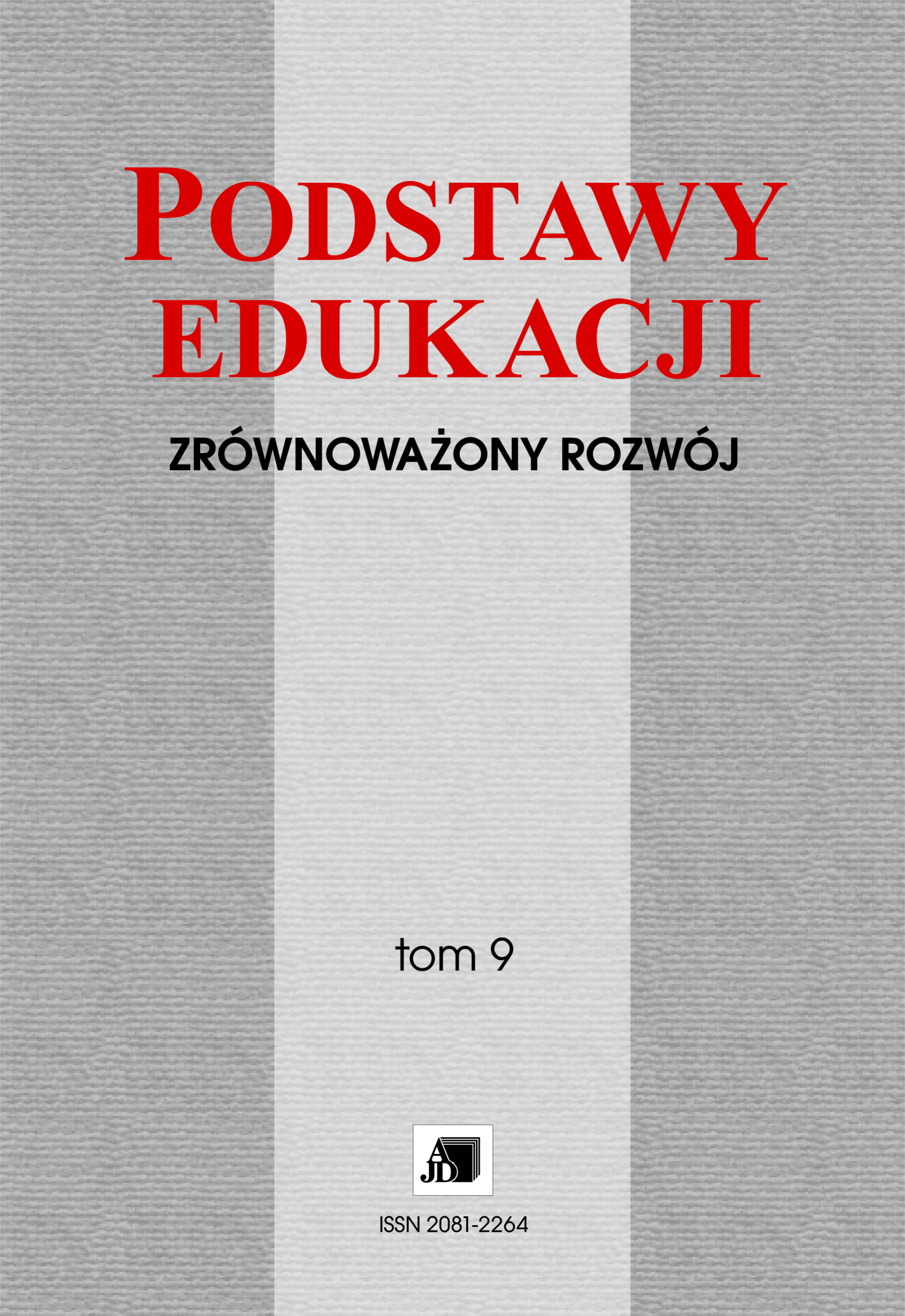Abstrakt
Szybki postęp, jaki pojawił się w XX wieku, przyniósł nie tylko intensywny rozwój gospodarczy i społeczny, ale także liczne zagrożenia, z silnym potencjałem traumatogennym, wywierającym wpływ nie tylko na społeczeństwo, ale także na każdego człowieka z osobna, m.in.: wysokie bezrobocie, zróżnicowanie społeczne, degradację środowiska, destabilizację systemów, relatywizację i deprecjację wartości itd. Pojawiła się konieczność szerszej debaty nad przyszłością ludzkości i dziedzictwem, jakie pozostawiamy przyszłym pokoleniom. Zmiana społeczna, którą obserwujemy, w rzeczywistości dotyczy także przeobrażeń zachodzących w naszych rodzinach i w systemie edukacji. Konieczne jest nowe spojrzenie na całokształt edukacji, kształcenie człowieka otwartego, świadomego, krytycznego, ale i twórczego, dla którego dobro drugiego człowieka, szacunek do tego, co mamy wokół, jest kwestią priorytetową. Takie kształcenie wpisuje się w koncepcję zrównoważonego rozwoju. W artykule podejmujemy próbę zbadania opinii nauczycieli na temat zrównoważonego rozwoju. Zdajemy sobie sprawę, że grupa jest niewielka, niemniej mamy nadzieję, że będzie przyczynkiem do dalszych eksploracji badawczych na ten temat.
Bibliografia
Bieńkowska, I., Kitlińska-Król, M. (2016). Clubs of Social Integration and the Quality of Life of Older People in the Context of Sustainable Development. Journal of Human Dignity and Wellbeing. The dignity of the human being – migrating boundaries, 1, 105–119 .
Dokumenty Końcowe Konferencji Narodów Zjednoczonych „Środowisko i Rozwój”. Rio de Janeiro, 3–14 czerwca 1992. https://bs.sejm.gov.pl/ F?func=find-b&request=000004496&find_code=SYS&local_base=BIS01.
Hull, Z. (2003). Filozofia zrównoważonego rozwoju. W: A. Pawłowski (red.), Filozoficzne i społeczne uwarunkowania zrównoważonego rozwoju. Lublin: Wydawnictwo Drukarnia Liber.
Hull, Z. (2005). Filozofie zrównoważonego rozwoju. W: A. Papuziński (red.), Zrównoważony rozwój. Od utopii do praw człowieka. Bydgoszcz: Oficyna Wydawnicza Branta.
Kuzior, A. (2007). Filozoficzne ujęcia koncepcji zrównoważonego rozwoju. W: Z. Plasienkova, E. Lalikova (red.), Igor Hrusovsky osobnost slovenskej filozofie. Bratysława: Fu SAV, IRIS.
Strategia Edukacji dla Zrównoważonego Rozwoju. Ministerstwo Środowiska. (2008). Warszawa. http://nauczyciele.mos.gov.pl/index.php?app=docs& action=get&iid=1274.
Ustawa o systemie oświaty z dnia 7.09.1991 r. (Dz.U. z 2016 r. poz. 1943 i 1954). http://www.prawo.vulcan.edu.pl/przegdok.asp?qdatprz=akt&qplik id=1.
OŚWIADCZENIE AUTORA:
Mam świadomość, że czasopismo jest wydawane na licencji Creative Commons - Uznanie autorstwa (https://creativecommons.org/licenses/by/4.0/legalcode).
Przesyłając artykuł wyrażam zgodę na jego udostępnienie na tej licencji.
